You probably already know that cola is supposed to help with nausea during pregnancy. But are you also aware that this drink contains a lot of caffeine? If you also drink a lot of coffee during pregnancy, this can add up quickly. Here we explain how dangerous this can be for your child.
Table of contents
Why Cola Is Problematic During Pregnancy
Coke during pregnancy has the same effect as it does on non-pregnant people: it stimulates and wakes you up. That’s why pregnant women are reluctant to give it up. After all, you often feel drained.
Caffeine and sugar together ensure that you have more energy in the short term. It’s like the caffeine content in coffee: early in the morning, it ensures that we start the new day with momentum.
But it also has its drawbacks. Caffeine stimulates. You feel much more awake than before drinking it. This happens with the help of blood pressure, which shoots up. Coffee drinkers know and appreciate this effect, especially in the morning, when you’re still really sleepy.
Then the pulse goes up, and sweat often breaks out. A sign that violent physical processes are taking place! Because of these effects, we count caffeine as a psychoactive substance. Your unborn child experiences all of this just as you do: the ingredients eventually reach it via the circulatory system.
Even more. Caffeine causes your blood vessels to constrict. This reduces the oxygen supply to certain parts of your body. Even the placenta can be affected! Therefore, there is reason to believe that too much cola during pregnancy will cause your baby to grow worse.
Its weight will be lower than normal. Because this is an important topic, there are even studies on this. Most of them focus on the caffeine content of coffee. However, they are also significant for cola during pregnancy, as we will see.
Coffee During Pregnancy – What Science Says
An English study from 2010 confirms: Anyone who exceeds a certain amount of caffeine per day, for example, with tea during pregnancy or coffee during pregnancy, endangers the unborn child. There may then be disturbances in growth.
Even a fairly small amount of 200 mg of caffeine per day was sufficient as a risk factor. This level increased the risk of reduced newborn weight by 50 percent. The test subjects consumed foods containing caffeine, such as tea, chocolate, or coffee during pregnancy.
Cola In Pregnancy: Consequences
- Miscarriage: increased risk.
- Birth weight of the child too low.
- Other growth disorders.
Other studies even assume that miscarriages could occur more frequently if a pregnant woman does not pay attention to the caffeine content in her coffee. Californian scientists came to a frightening conclusion.
The risks of miscarriage were twice as high among women who consumed more than 200 mg of caffeine daily. Depending on the caffeine content in coffee, that’s two and a half cups. With cola, that would be four glasses of 200 ml each. That can happen quickly, especially in a hot month.
The problem is that many foods contain caffeine. The caffeine content in the coffee then adds up with whatever else the pregnant woman takes. Thus, not only cola but also coffee during pregnancy, energy drinks, or even chewing gum should be treated with caution.
These Foods Contain A Lot Of Caffeine
Data per 100 ml or 100 g approximate values:
- Cola = approx. 25 ml.
- Dark chocolate = 88mg.
- Black / green tea = 20 mg (if you steep it for more than 5 minutes, it is already 30 mg).
- Filter coffee = 40 mg, depending on the strength.
- Espresso = 110 mg (espresso is for example in Tiramisu).
- Energy drinks = 31 mg.
- Club Mate = 20 mg.
- Certain types of chewing gum.
However, caffeine only becomes harmful if you consume it in unusually high quantities. To do this, you would have to drink about 333 espressos in a row – i.e. 10 grams of caffeine.
Nevertheless, too much caffeine in coffee is not recommended under certain circumstances, and this also applies to cola during pregnancy. Nutrition experts give guidelines on what is allowed and what can be dangerous for your child.
The German Nutrition Society (DGE) used to say that a pregnant woman could consume up to 300 mg of caffeine a day. Whether cola or tea during pregnancy is irrelevant. Today, these recommendations are even stricter out of concern for the unborn child.
In the meantime, the DGE has also joined these stricter recommendations and explicitly states that from 300 mg per day, the risk of spontaneous abortion massively increases (DGE: Uniform recommendations for action during pregnancy, updated version). Therefore, it is important to know the caffeine content in coffee and cola.
Cola In Pregnancy: How Much Is Allowed?
Already the dose for an adult should be limited to a maximum of 400 mg of caffeine daily, according to recommendations of the European EFSA (Food Safety Authority).
Depending on size, that’s about two cups of coffee. For pregnant women, the same authority recommends even less, only about half. You should consume a maximum of 200 mg of caffeine per day if you are carrying a child.
Caffeine Content In Coffee: Caffeine Rarely Comes Alone
So is cola dangerous during pregnancy? This cannot be said in general: the problem is not the daily maximum levels per se. What is problematic is their composition, because we rarely drink cola on its own.
Add to that coffee during pregnancy, a bar of chocolate, then another cup of tea in the afternoon – it all adds up. So cola alone during pregnancy is rarely responsible for growth disorders in the unborn child.
How Much Cola Is Okay During Pregnancy?
Besides, a glass of cola doesn’t just contain 100 ml. So a little calculation is necessary to find out the real maximum amount of cola allowed during pregnancy. We assume a glass of cola with 200 ml. In this case, one glass already contains 50 mg of caffeine.
The situation is similar to the other drinks. On our list, we assume only 100 ml per drink, with solid food it is then 100 g. But mostly you take more or less of it. So you have to calculate accordingly.
As a rule of thumb, it has been proven: Even if you drink coffee during pregnancy and do not abstain from chocolate and the like, you may drink one glass of cola per day. Then you are usually still under the maximum amount allowed!
Cola In Pregnancy Against Nausea?
The above rule of thumb helps especially those expectant mothers who have discovered cola in pregnancy against nausea for themselves. This is a tip that is given again and again. Often this is done with good intentions: cola during pregnancy can certainly help against nausea. Not everyone knows that it can harm the child if consumed in excess.
If you want to be on the safe side, you should only drink a glass of cola now and then during pregnancy. There are other ways to combat nausea, although many of them are controversial: For example, ginger can help during pregnancy.
But other experts advise against it because ginger in pregnancy has a reputation for inducing labor pains. What helps most sufferers, however, is the following tip. It is also comparatively harmless: smell a cut lemon!
Sugar Not Only Damages Your Health
If you are pregnant, you gain weight – that seems unavoidable. Especially such expectant mothers should rather stay away from cola during pregnancy. As hard as it may be, cola is bursting with sugar.
If you drink a particularly large glass of 250 ml, you already consume 27 g of sugar. However, the World Health Organization (WHO) recommends that an adult should only eat 25 g of sugar per day.
If you eat that regularly, you will inevitably get fatter. This is what happens when we eat too many calories, and pregnancy is no exception. Sugar, like caffeine, is not only found in cola.
Thus, just by regularly consuming too much cola during pregnancy, numerous problems arise. First of all, you gain weight excessively. Also, there is something called gestational diabetes.
The culprit is – you guessed it – too much sugar. This type of diabetes not only affects you but also harms your child. Once again, it can lead to developmental disorders in the unborn child. The only way to avoid this is to avoid it or to choose light products.
At this point, I would like to say a few words about sweeteners, which used to have a bad reputation: They have long had a bad reputation. But their harmfulness has not been proven. Zero or Light Cola is therefore safe for you and your child.
Unfortunately, that’s not all. Another substance that is not good for you or your child is phosphoric acid: it is said to lead to osteoporosis. In addition, cola contains many dyes. These, in turn, are not good for your immune system. You should therefore enjoy all this only in moderation!
Conclusion
Whether cola is okay during pregnancy depends on the amount. A little of it does not harm you or your child: a little means one glass every day is harmless. The main problem is caffeine.
Studies suggest that too much cola can harm the unborn child. But the sweet pick-me-up also contains too much sugar: just one glass of it exceeds the amount of sugar recommended by the WHO as a daily dose. This can’t be healthy.
But you don’t have to give up everything in the event of pregnancy. You can get by with just a little, especially since cola is a hot tip against increased nausea during pregnancy. You should just not overdo it, as with everything else: You are feeding it directly to your child! Cola is only harmful during pregnancy if you consume too much of it.





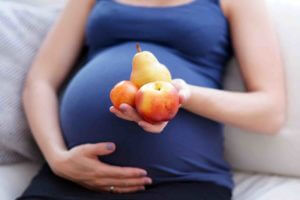
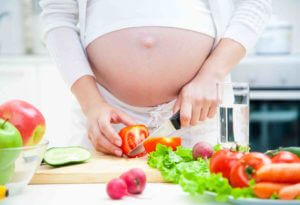
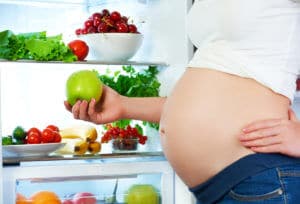
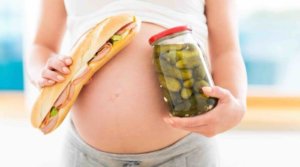



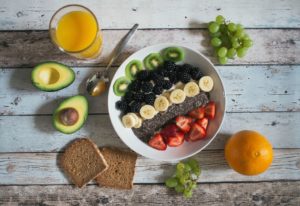
Great content! Super high-quality! Keep it up! 🙂